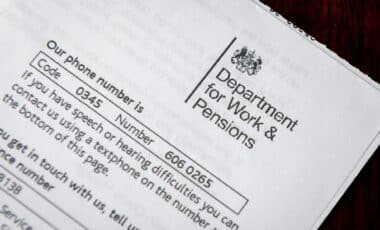The Department for Work and Pensions (DWP) is facing growing criticism over its planned reforms to disability benefits under a new bill set to roll out this week.
Critics, including disability advocates and affected claimants, are warning that these changes could have severe consequences for vulnerable individuals, particularly those relying on Personal Independence Payments (PIP).
With the potential for up to £5 billion in cuts, the government is being urged to reconsider its approach. As the Labour Party prepares to implement these reductions, campaigners are raising alarms about the risk of pushing hundreds of thousands of disabled people into poverty.
A Harsh Impact on the Most Vulnerable
The planned changes could have a profound effect on those with disabilities. According to figures, up to 250,000 people are at risk of falling into relative poverty by 2029-30 due to cuts in benefits, including 50,000 children.
The PIP, which is designed to help with extra costs of living for people with long-term disabilities, is particularly at risk. Some claimants have expressed fears about new assessment criteria for PIP, which they fear will make it more difficult to qualify for support.
For many, PIP is not only a vital lifeline but also essential for allowing them to live independently.
One claimant told The Guardian that under the new rules, the points system could cause them to lose their benefits, leaving them unable to afford crucial care services. These fears echo concerns from others who say that the proposed changes treat disabled individuals as second-class citizens, valued only for their ability to work rather than their need for support.
Criticism From Within the Labour Party
The cuts have also sparked internal conflict within the Labour Party, with some members accusing the leadership of betraying the party’s founding principles of social welfare. Critics argue that these changes contradict the party’s historic commitment to support the most disadvantaged in society.
Several high-profile figures, including Liz Kendall, Rachel Reeves, and Sir Keir Starmer, have been accused of endorsing policies that harm the very people Labour should champion.
For some, the decision to support these cuts has prompted feelings of betrayal. A number of former Labour supporters have publicly stated their dissatisfaction, with some even resigning from the party. One individual remarked that the new policies have made them feel like “a scrounger,” despite having long paid into the system.









